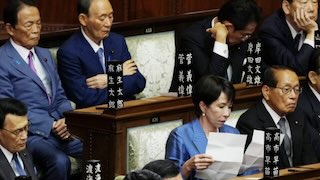Aug 24 (Reuters) - Japan will restart more idled nuclear plants and look at developing next-generation reactors, Prime Minister Fumio Kishida said on Wednesday, setting the stage for a major policy shift on nuclear energy a decade after the Fukushima disaster.
The comments from Kishida - who also said the government would look at extending the lifespan of existing reactors - highlight how the Ukraine crisis and soaring energy costs have forced both a change in public opinion and a policy rethink toward nuclear power.
Japan has kept most of its nuclear plants idled in the decade since a massive earthquake and tsunami in 2011 triggered a nuclear disaster at the Fukushima Daiichi power plant.
Kishida told reporters he had instructed officials to come up with concrete measures by the year end, including on "gaining the understanding of the public" on sustainable energy and nuclear power.
Government officials met on Wednesday to hammer out a plan for so-called "green transformation" aimed at retooling the world's third-largest economy to meet environmental goals. Nuclear energy, which was deeply opposed by the public in the aftermath of the Fukushima crisis, is now seen by some in government as a component for such green transformation. ...continue reading















